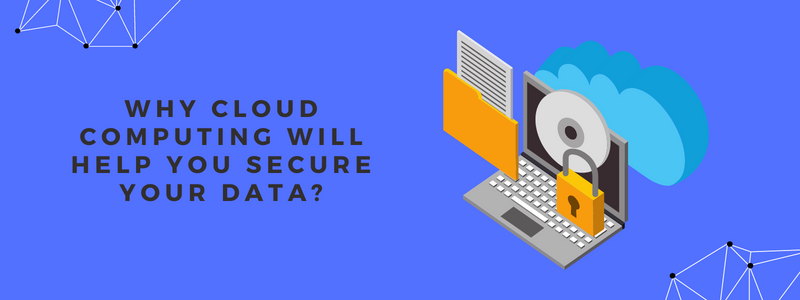Why Cloud Computing will help you secure your data?

Cloud Computing is a growing technology
Over the past few years, there has been a growing trend in the use of cloud computing. This technology allows users to access applications and data from remote servers, making it a convenient and powerful tool for businesses and individuals alike.
There are many benefits to using cloud computing, including the ability to scale up or down as needed, the flexibility to work from anywhere, and the reduced need for expensive hardware. As more and more businesses and individuals adopt this technology, it is likely that the demand for cloud computing will continue to grow.
What is Cloud Computing?
Cloud computing is a term that refers to the use of remote servers to store, manage, and process data. The data is stored on a network of servers, which are typically located in data centers.
These servers are usually owned and operated by a third-party provider, such as Amazon Web Services or Microsoft Azure.
You may also like: Cloud Computing vs Cloud Directory
How can Cloud Computing help you secure your data?
As the world becomes more and more digital, the need for reliable and secure data storage solutions has never been greater. Luckily, cloud computing has arisen as a viable solution for businesses and individuals alike.
So how can cloud computing help you secure your data? By storing it off-site in a remote location, cloud computing can provide an extra layer of protection against physical disasters like fires or floods. Additionally, cloud-based data storage solutions are often backed up regularly, ensuring that your data is safe even if something happens to the original copy.
If you’re looking for a secure way to store your data, cloud computing is a great option to consider.
What are some benefits of Cloud Computing?
Cloud computing has become increasingly popular in recent years, as more and more businesses have started to utilize its many benefits. Cloud computing is a way of storing and accessing data and applications over the Internet, instead of on your computer’s hard drive. This can be beneficial for businesses in a number of ways.
First, cloud computing can help businesses save money on their IT costs. When you store data and applications in the cloud, you don’t need to invest in expensive hardware and software to run them. Furthermore, you can avoid the costs of maintaining and repairing your own on-site IT infrastructure.
Second, cloud computing can improve your business’s scalability and agility. When you use the cloud, you can easily scale up or down your IT needs, depending on your business’s changing needs. This can help you save money and be more flexible in your pursuits.
How can you get started with cloud computing?
Cloud computing is a term that refers to the use of remote computing resources to perform tasks that would traditionally be performed on a local computer. In other words, cloud computing is the ability to access data and applications over the Internet instead of having to store them on your own computer.
There are many benefits of cloud computing, including the ability to scale resources on demand, pay only for what you use, and access to data and applications from anywhere. If you’re interested in getting started with cloud computing, there are a few things you’ll need to consider, including what type of resources you need and what type of provider you want to use.
First, they should choose a reputable and reliable Cloud provider. Second, they should encrypt their data before storing it in the Cloud. And third, they should create a security plan that outlines how they will protect their data in the Cloud.
Conclusion
Cloud Computing has revolutionized the way businesses operate. It allows businesses to store and access data in remote servers, which can be accessed from anywhere in the world. This is a convenient and cost-effective way to store data, as businesses do not need to invest in their own physical servers.
We hope that you learned something new about Cloud Computing after reading this article. You might also want to take a look at our articles on JumpCloud vs Azure AD and the Key Differences between Cloud Computing and Cloud Directory and visit F60 Host for more information.
